What are Energy Efficient Windows, and How Do They Work?

Energy-efficient windows are designed to minimize heat transfer, keeping your home warmer in the winter and cooler in the summer. This is achieved through several key features, including low-emissivity (Low-E) coatings, gas fills between panes (like argon or krypton), and insulated frames. These features work together to significantly reduce energy loss.
Boswindor windows, for example, utilize advanced Low-E coatings that reflect infrared light, keeping heat inside during winter and outside during summer. We also offer argon and krypton gas fills, which are denser than air and provide superior insulation. Explore our range of high-performance glazing options. This drastically improves the window’s energy efficiency.
What are the Key Benefits of Energy-Efficient Windows?

The benefits of energy efficient windows extend beyond just lower energy bills. They include:
- Increased Comfort: Reduced drafts and more consistent indoor temperatures enhance the comfort of your home year-round.
- Reduced Energy Bills: Less energy is needed to heat and cool your home, resulting in significant energy savings.
- Reduced Condensation: Energy-efficient windows are less prone to condensation, which can damage window frames and contribute to mold growth.
- Protection from UV Rays: Low-E coatings block harmful UV rays, protecting your furniture and flooring from fading.
- Increased Home Value: Energy-efficient windows are a desirable feature that can increase the resale value of your property. This is especially attractive to villa owners and those planning future renovations.
How Much Do Energy Efficient Windows Cost?
The energy-efficient windows cost varies depending on factors such as size, frame material, glazing type, and installation complexity. While the initial investment may be higher than standard windows, the long-term energy savings and increased home value often offset the upfront cost.
A typical double-pane window with Low-E coating and argon gas fill might range from $200 to $1,000+ per window, depending on the factors mentioned above. However, consider this an investment. Replacing single-pane windows with energy-efficient models can lead to substantial reductions in your energy bills. Get a personalized quote for your project from Boswindor.
What Should I Look for in Energy Star Certified Windows?

Energy Star certified windows meet strict energy efficiency guidelines set by the U.S. Department of Energy and the Environmental Protection Agency (EPA). Look for the Energy Star label when choosing windows. This label indicates that the window meets or exceeds the energy performance standards for your climate zone.
Key factors that contribute to Energy Star certification include:
- U-Factor: Measures how well the window insulates. Lower U-factors indicate better insulation.
- Solar Heat Gain Coefficient (SHGC): Measures how much solar heat the window lets in. Lower SHGC values are better for cooling climates.
- Visible Transmittance (VT): Measures how much visible light passes through the window.
- Air Leakage: Measures how much air passes through cracks in the window assembly.
Boswindor offers a wide range of Energy Star certified windows designed to meet the specific needs of various climates and building types. [Browse our Energy Star certified product line](link to boswindor.json energy star page).
How Can Energy Efficient Windows Save Me Money?
Energy efficient windows save money by reducing your home energy consumption. By minimizing heat transfer, your HVAC system doesn’t have to work as hard to maintain a comfortable temperature, leading to lower energy bills.
The amount you save will depend on your climate, the type of window you choose, and your current energy use. However, studies have shown that replacing old, inefficient windows with Energy Star-rated models can save homeowners hundreds of dollars per year. For hotel property company purchasing managers, the cumulative savings across multiple units can be substantial.
Are There Federal Tax Credits for Energy Efficient Windows?

Yes, there are federal tax credits available for homeowners who install energy-efficient windows. The Energy Efficient Home Improvement Credit allows you to claim the energy efficient home improvement costs on your taxes, up to a certain limit. This is known as residential clean energy credit.
The credit amount and eligibility requirements can change, so it’s important to consult the IRS website or a tax professional for the most up-to-date information. Please note you can claim the maximum annual credit every year you make eligible improvements until 2033. You will only get money back more on the credit when you file your taxes. Important to know, you do not qualify for this credit if you’re a landlord. You must live in the home that features the upgrade.
How Do I Choose the Right Energy-Efficient Windows for My Home?

Choosing energy-efficient windows requires considering several factors:
- Climate: Different climates require different window features. For example, a hot climate benefits from windows with a low SHGC, while a cold climate benefits from windows with a low U-factor.
- Window Style: Different window styles (e.g., double-hung window, casement, awning) have different energy performance characteristics.
- Frame Material: Vinyl window, wood, fiberglass, and aluminum frames all offer varying levels of insulation.
- Glazing Options: Consider Low-E coatings, gas fills, and the number of panes (double or triple-pane windows).
- NFRC Ratings: Consult the National Fenestration Rating Council (NFRC) ratings to compare the window’s energy performance of different models.
How Can Boswindor Help Optimize Your Building’s Energy Performance?
As a leading manufacturer of energy-efficient windows, Boswindor offers a comprehensive range of solutions for builders, architects, construction engineers, and homeowners. We work closely with our clients to understand their specific needs and provide customized window solutions that maximize energy efficiency and enhance building aesthetics.
We offer:
- Expert Consultation: Our team of experts can help you select the best windows for your project.
- Customizable Options: We offer a wide variety of frame materials, glazing options, and window styles.
- High-Quality Manufacturing: Our windows are designed and manufactured to the highest standards of quality and performance.
- Professional Installation Guidance: While we focus on manufacturing, we can connect you with trusted installation partners. Learn more about partnering with Boswindor.
Boswindor Doors&Windows Solution Meet Your Needs
Durability, Low Maintenance, Lightweight, Strength, Sleek Aesthetic, Energy Efficiency, Recyclable, Resistance to Corrosion, Longevity, Customize, Security
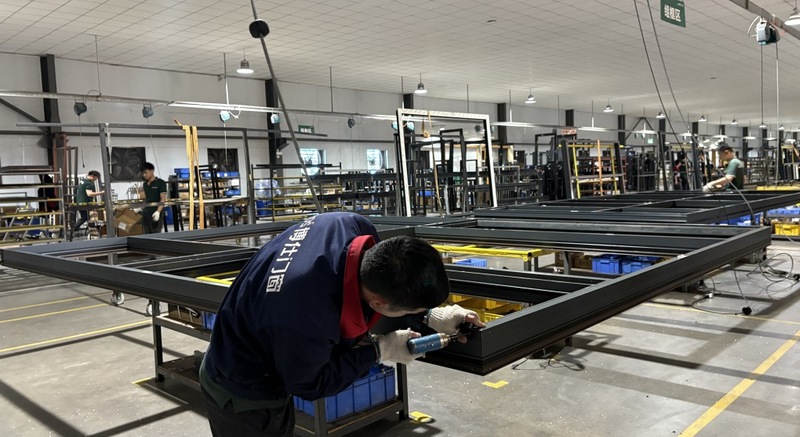
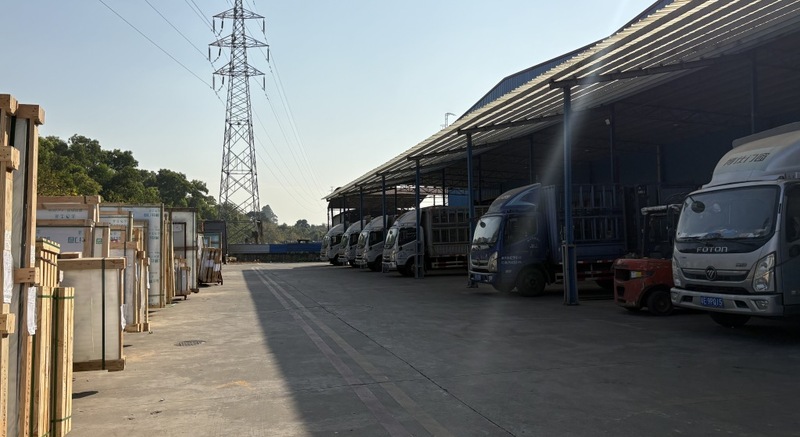
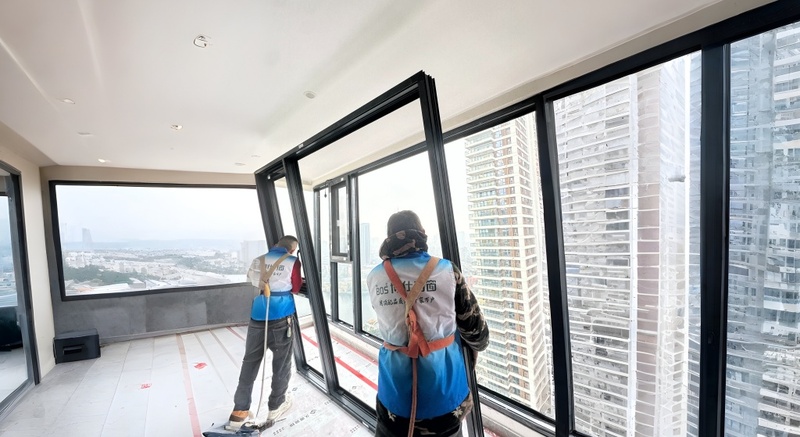
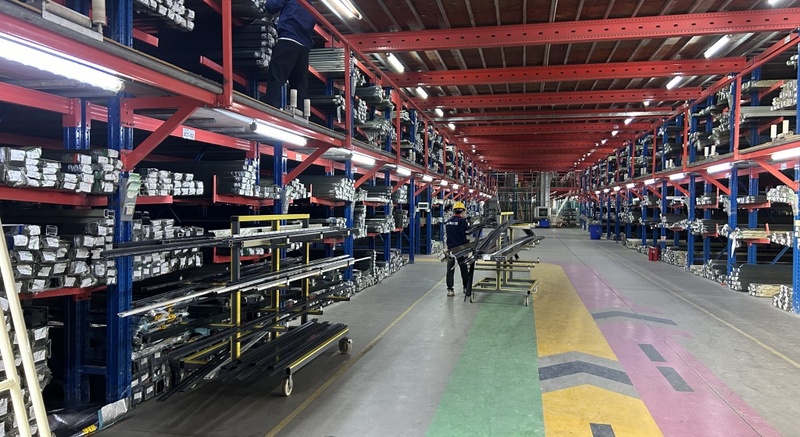

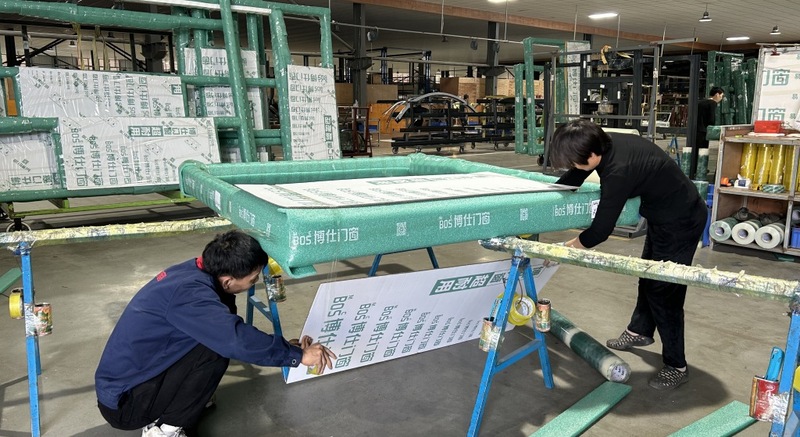
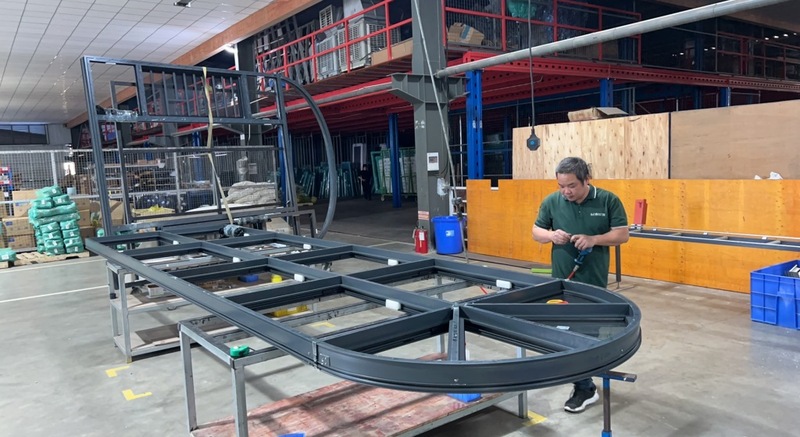
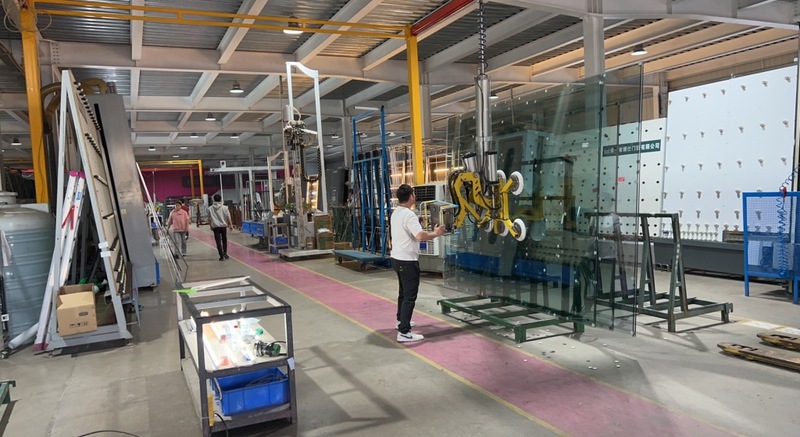
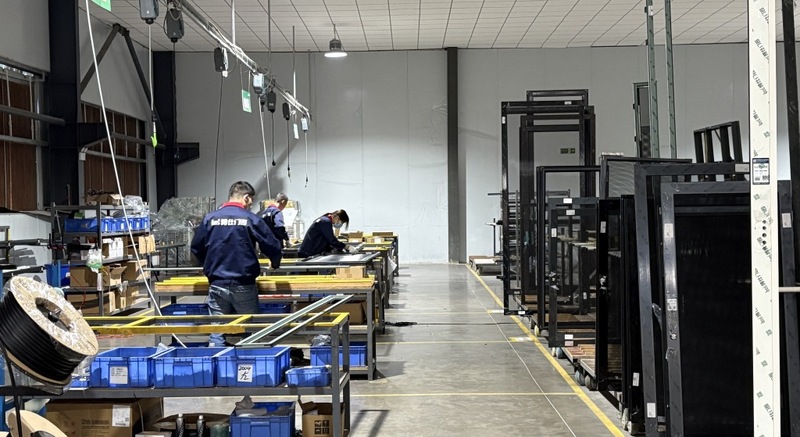
What Type of Window Frame is Most Energy Efficient?
While all frame materials can be made energy-efficient, some offer inherent advantages. Vinyl window frames, for example, are excellent insulators and require minimal maintenance. Wood window frames also provide good insulation but require more upkeep. Fiberglass frames offer a good balance of durability, insulation, and low maintenance.
Boswindor offers a range of frame materials to suit different aesthetic preferences and performance requirements. We ensure that all our frames, regardless of material, are designed to minimize air leakage and maximize thermal performance.
Double-Pane vs. Triple-Pane Windows: Which is Better?
Double-pane windows are the standard for energy efficiency, offering a significant improvement over single-pane windows. Triple-pane windows, however, provide even greater insulation and sound reduction. The choice between the two depends on your budget, climate, and desired level of energy savings.
In very cold climates, or for projects aiming for the highest level of energy efficiency, triple-pane windows may be the best choice. For many homes, however, double-paned windows with high-quality Low-E coatings and gas fills offer excellent performance at a more affordable price. Boswindor provides both, allowing our customers to choose the best fit.
FAQs

What is the difference between U-factor and SHGC?
U-factor measures how well a window prevents heat from escaping, while SHGC measures how much solar heat the window allows in.
How do I know if my windows are energy efficient?
Windows are energy efficient if they have features like Low-E coatings, gas fills, and insulated frames. Check for the Energy Star label or NFRC ratings.
Can I install energy-efficient windows myself?
While some homeowners may be able to install windows and windows, professional window installation is generally recommended to ensure proper sealing and optimal performance, especially for construction industry purchasing managers dealing with large-scale projects.
Do energy-efficient windows reduce noise?
Yes, energy-efficient windows, especially those with multiple panes and gas fills, can significantly reduce noise transmission. This can be a very big benefit to hotel purchasing managers.
What are the long term saving by purchasing efficient windows?
Energy efficient windows, windows and doors, help keep a building or home cool during summer and warm during winter, the overall energy efficiency drastically lowers the electric bill, which can save thousands of dollars in the long run.
Buying new windows can save the owner money also through tax deductions.
How can windows and skylights impact my energy bill?
Windows and skylights, if not energy efficient, can be major sources of heat loss and gain, significantly impacting your energy bills. Upgrading to energy-efficient options can drastically reduce these effects.
Key Takeaways
- Energy-efficient windows significantly reduce heat transfer, lowering energy bills and increasing comfort.
- Look for the Energy Star label to ensure your windows meet strict energy efficiency standards.
- Consider factors like climate, window style, frame material, and glazing options when choosing windows.
- Boswindor offers a wide range of customizable, high-quality energy-efficient windows for all building types.
- Federal tax credits can help offset the cost of installing energy-efficient windows.
- Windows in a variety of styles and materials can be energy efficient.
- Windows energy-efficient options often provide additional benefits, such as reduced noise and UV protection.
- Making improvements to your home windows, can save a lot in energy costs in the long run.


